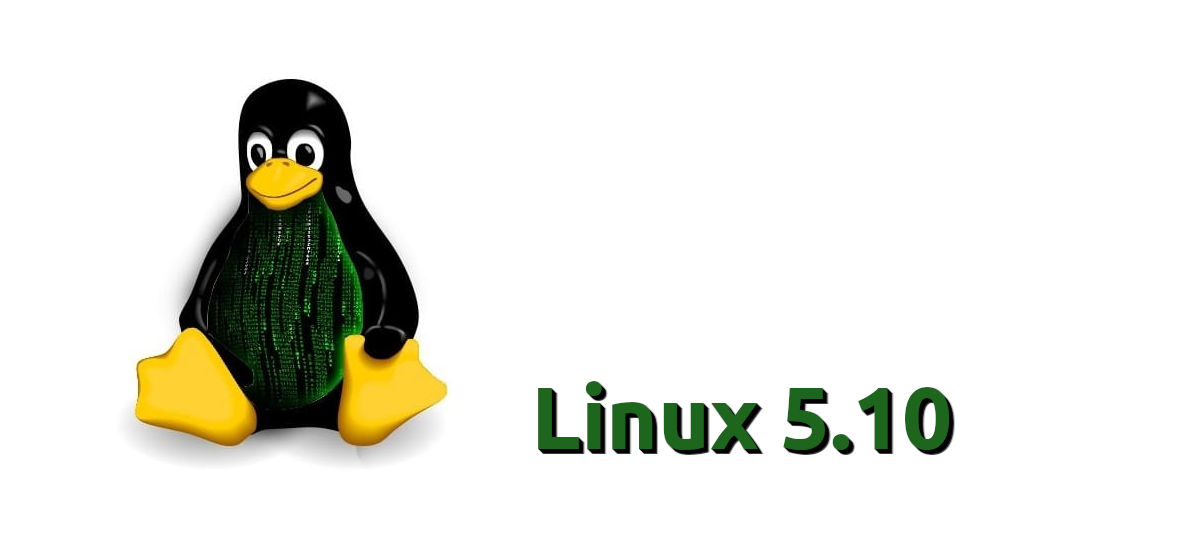
As expected, and more after a XNUMXth Release Candidate in which everything returned to normal, Linus Torvalds has made official the launch of Linux 5.10. This is a major update, starting because it is an LTS version that has been supported for much longer, which is likely to see systems such as Debian 11 "Bullseye" arriving in mid-2021. It also includes interesting news.
In this article we are going to publish an extensive list with the most outstanding news that have come with Linux 5.10, one that published a while ago Michael Larabel on his blog. Among them, a Raspberry Pi 4 owner like me would point out that the support has been improved, which should improve things in any system that we install on the raspberry board, especially those that are updated sooner like Manjaro ARM.
Linux 5.10 Highlights
Processors
- They continue with the improvements for Intel Rocket Lake, as well as that it has begun to work in the Alder Lake and Meteor Lake.
- Support with Ingenic MIPS X2000 / X2000E IoT processor.
- Support for the PowerPC 601 was retired as the original 32-bit PowerPC processor.
- SLDT / STR emulation with UMIP to help some Windows games running on Linux under WINE no longer have problems.
- A fix for AMD Zen 3 CPU frequency handling that stems from a fix in 2012 to override the ACPI _PSD table on AMD processors.
- Performance support for AMD Zen 3 along with other Linux performance additions.
- AMD Zen 3 EDAC support.
- Much faster mremap performance on ARM64 hardware.
- AMD Zen 3 temperature sensor support.
- Initial support for NVIDIA Orin.
- RISC-V initial boot via EFI.
- KVM chose the new TDP MMU which can help especially with very large virtual machines.
- Xen fixes ARM guest support when operating with KPTI (Kernel Page Table Isolation) to mitigate Meltdown.
- Support for AMD SEV-ES for Secure Encrypted Virtualization "Encrypted State" (ES) to better protect virtual machines.
- AMD Secure Nested Paging IOMMU in preparation for SEV-SNP support.
- AMD SME hardware enforced cache consistency.
- Support for Zhaoxin 7-Series Centaur.
- Initial use of the Intel SERIALIZE statement.
- Arm Memory Tagging Extension and Pointer Authentication work to better protect the system with the newer ARM64 SoCs.
- ARM's Specter mitigations have been rewritten with the "Ghostbusters" rework.
- SMT balance adjustments in the scheduler.
Graphics
- Support for Tiger Lake HOBL to help extend battery life.
- Work continued on Gen12 support within Intel Rocket Lake.
- Work has continued to support the AMD RDNA 2 / Radeon RX 6000 series initially introduced in Linux 5.9.
- AMDGPU DC display support for GPU GCN 1.0 (Southern Islands).
- Support Raspberry Pi VC4.
- Matrox G200 desktop graphics support in Matrox DRM driver.
- A solution for poor power management with AMD laptops that have Radoen discrete graphics.
- Many other updates on open source DRM.
Storage
- XFS now supports timestamps up to the year 2486 instead of the year 2038, it will now deprecate the V4 file system format in 2030, and also deprecate the old Irix settings in 2025.
- Fsync performance optimizations for Btrfs.
- F2FS enhancements including age threshold garbage collector, support for faster file decompression, NVMe ZNS support, generic case folding, and more.
- A "volatile" option for OverlayFS to produce faster performance but where syncs are skipped.
- Nosymfollow mount option added and similar to BSDs to improve system security.
- EXT4 now supports fast commits and faster file overwrite performance in DIO / DAX modes.
- NFS client support for READ_PLUS that can help enable faster read performance of sparse files.
- A DAX mode for FUSE to produce faster performance mainly for VirtIO-FS.
- Improvements in RAID10 DISCARD.
- Faster hibernation and resume.
Others
- Continuous work on USB4 support.
- Hardening against possible DMA attacks by external PCI Express devices.
- Synaptics touchpad enhancements for newer laptops, primarily Lenovo devices.
- Device tree additions for Purism Librem 5 and other ARM boards.
- Matias wireless aluminum keyboard stand taking advantage of the hid-apple controller so that all functions now work.
- A rewrite of the Intel Haswell audio driver for the Lynx Point / Wildcat Point audio DSP hardware.
- Audio output support for Intel DG1.
- Creative SoundBlaster AE-7 support.
- Support for the Nintendo Switch controller has been expanded.
- Support for Amazon Nitro Enclaves and other types of character / miscellaneous switching.
- Many staging updates.
- Many updates to the network subsystem.
- Initial landing of the reform to printk ().
- Introduction of the Vidtv virtual controller for the media subsystem.
- A new static_call () function to help in cases where Retpolines are used.
Linux 5.10 can now be installed, but manually
The Linux 5.10 release it's official, but right now it can only be installed manually. It will soon be able to be installed using tools like Ubuntu Mainline Kernel Installer and later, some distributions, especially those that use the Rolling Release development model, will add it as an update.